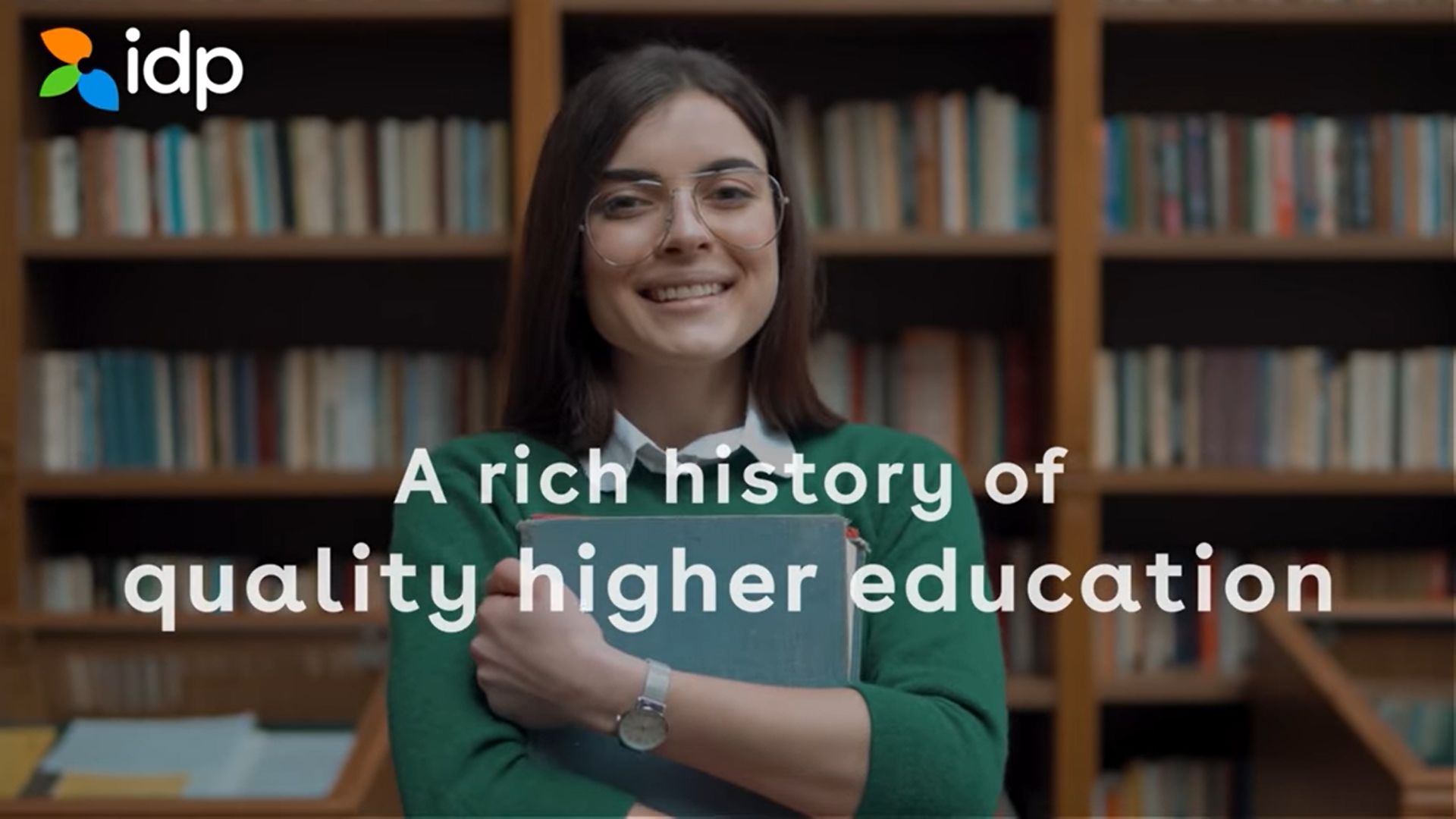Why study in the UK?
One of the most popular study destinations, the United Kingdom (UK) boasts a proud tradition of education, with universities dating back to the 12th and 13th centuries. A university degree from the UK is internationally respected, with the country credited with producing 14% of the world's most cited academic papers and 5% of the world's scientific research. The UK also has an average student retention rate of 82%.
Known for its history, rich culture, and innovation, the UK also offers a vibrant and welcoming environment for international students. It is a diverse nation that brings people together from all over the world, creating a rich mix of cultures, traditions, and perspectives.
Overall, the British society values respect, politeness, and individuality, making it easier for newcomers to adapt. Universities also foster inclusivity through international student communities, support services, and multicultural events, helping students feel at home while building global friendships and professional networks.
Studying in the UK can lead to significant economic and professional advantages. Many courses in the UK are more intensive and shorter in duration than in other countries. This means that students can complete their degrees in a shorter time frame, saving on both tuition fees and living expenses. With a comprehensive support system in place for Filipino students, it's no wonder that studying in the UK is a preferred choice and a life-changing experience.





UK Education System
The UK education system is globally recognized for its teaching excellence. UK universities emphasize innovation and world-class research, and they invest in the latest facilities that work alongside academic tradition.
This means that Filipino students get the best of both worlds, from cutting-edge learning experiences and modern resources to a strong foundation in academic excellence and time-honored teaching practices.
Additionally, the UK's strong ties to various industries provide endless opportunities for internships, work placements, and networking, which can give students a competitive edge in the job market.
The teaching and learning style at UK universities is diverse, engaging, and highly interactive. Filipino students can expect to play an active role in classroom discussions and projects rather than being passive listeners. Top universities in the UK place strong emphasis on developing critical and analytical thinking across all subjects, which may differ greatly from traditional classroom approaches in the Philippines.
While this learning style can be challenging at first, it ultimately helps Filipino students build greater confidence, independence, and creativity.
Top universities in the UK
Across all global ranking systems, UK institutions perform consistently among the best in the world for their quality of education, student satisfaction, and international reputation. The prestigious Russell Group, a collection of 24 leading research-intensive universities, provides Filipino students with the opportunity to get a top-class higher education, hone their skills, and really make a difference in their field, whether that's through an undergraduate or a postgraduate course.
From world-renowned institutions like Oxford, Cambridge, and Imperial College London to modern top UK universities known for industry-focused programs, there’s a wide selection of options to match your academic and career path goals.
You can explore a full list of top universities in the UK that continue to attract Filipino students seeking world-class education and global exposure.
UK universities: Upcoming intakes
The UK is consistently a top study destination for international students. If you intend to study in the UK, it can be helpful to understand the UK academic intake to better plan for your study journey.
UK universities generally have two main academic intake periods each year:
Semester 1: September to December
Filipino students wishing to begin studying in the UK in September will have to take note of the Universities and Colleges Admissions Service (UCAS) application deadline. The UCAS application is due on June30 every year, so you should really plan for this.
Semester 2: January to April
Students intending to enroll in January will have to submit a direct application to their intended university and course. This intake is subject to course and placement availability within the specific institution.
Choosing the right intake period
Usually, international students choose an intake period based on a range of factors, such as preferred choice of study, the availability of a program in a particular university, and academic records. If you are unsure about which semester to choose from, IDP admission counselors can walk you through the entire process and help you select the most appropriate option.
UK universities: Entry requirements and eligibility for Filipino students
For Filipino students who wish to pursue higher education in the UK, entry requirements and eligibility depend on the level of study and the specific course or university.
For undergraduate degree programs, students generally need to have completed Senior High School (Grade 12) under the K–12 education system or an equivalent qualification. Some universities may require completion of a foundation program or diploma to meet academic entry standards. For postgraduate programs such as a master's degree, applicants generally need a relevant bachelor’s degree from a recognized institution, along with evidence of strong academic performance.
Students will also need to demonstrate English language proficiency through tests such as IELTS, and most universities require a score of 6.0 to 7.0, depending on the course and level.
Admission process for Filipino students applying to UK universities
Most applications for undergraduate degree courses are made through the UCAS platform, and Filipino students can apply for up to five institutions at once. You will need to prepare essential documents, including academic transcripts, predicted grades, IELTS results, a personal statement, and a reference letter.
After submitting the UCAS application, you will have to wait for universities to review the materials and issue a conditional or unconditional offer based on academic results and other criteria.
For postgraduate degree programs, students usually apply directly through the university’s online application portal. You will need to submit your degree transcripts, IELTS results, a personal statement, and academic or professional references. Sometimes, an updated CV or research proposal is needed to complete your application.
Once accepted, you will receive a Confirmation of Acceptance for Studies (CAS) from the university, which you will need when applying for a Student Route visa. Once you have obtained the visa, you can start making travel and accommodation arrangements to prepare for your studies in the UK.
UK student visa requirements for Filipinos
All international students, including Filipino students, pursuing a higher education in the UK will require a student visa. This is regardless of the study course or level the student chooses to pursue, whether an undergraduate degree or a master's degree. A student visa for the UK legitimizes your academic status, providing official entitlement to engage in educational activities and access university resources.
There are a few different types of student visas available, and you will need to pick the one that is most suitable for your situation:
Student visa type | Who it is for | When to apply | Arrival in the UK |
|---|---|---|---|
Tier 4 (General) student visa | Students aged 16 or over who have been offered a place in a course at a UK educational institution. | Three months before the start of your course. | Up to one week before if your course lasts six months or fewer. Up to one month before if your course lasts more than six months. |
Tier 4 (Child) student visa | Students aged between four and 17 who have been offered a place in a course at a UK educational institution with a valid Tier 4 sponsor, such as an independent fee-paying school. | Three months before the start of your course. | Up to one week before if your course lasts six months or fewer. Up to one month before if your course lasts more than six months. |
Short-term study visa | Students are offered a place in a short-term course in the UK, such as an English language course or training course. | Three months before your date of travel to the UK. | Depends on your nominated travel dates. |
Across all student visas, you can apply up to three months before your intended date of travel to the United Kingdom. Your application date is the date when your application fee is paid.
The UK Visas and Immigration (UKVI) has transitioned to a digital immigration system too, and you will need to have an eVisa. It is important to prepare all the necessary set ups and documents early. Do ensure to research everything about applying for a UK student visa, and consider creating a checklist so you don't miss anything out.
Cost of studying in the UK for international students
Pursuing a higher education in the UK can be a significant investment, and proper planning can help students manage costs more effectively. The cost of studying in the UK varies depending on the school, course, and specific degree program you enroll in. On average, the annual tuition fees for a bachelor’s degree in the UK typically range from £17,000 to £22,000, depending on the course and university. Postgraduate programs usually cost between £16,000 and £20,000 per year.
Typical study expenses also include student visa fees, accommodation fees, health coverage, and study materials. Creating a well-structured budget (one that includes all the miscellaneous expenses) before you depart will help you manage your finances efficiently and make the most of your study experience in the UK.
UK scholarship opportunities for Filipino students
The UK government allocates resources to attract talented international students from around the world, including Filipino students, through prestigious scholarship schemes such as the Chevening Award Scholarships, Commonwealth Scholarships, and the GREAT Scholarships. These scholarship programs are designed to strengthen international partnerships and promote cultural exchange while enabling international students to study at some of the world’s leading universities.
Universities and institutions in the UK also offer a wide range of scholarship options, bursaries, and grants to support international students hoping to study in the UK. These are usually merit-based, needs-based, and country-specific scholarships for international students that recognize academic excellence and leadership potential.
Scholarships often provide partial or full funding for tuition fees and living expenses, and they can definitely help with the overall cost of study for Filipino students. Before applying to any of these UK scholarships, be sure to check the eligibility requirements and criteria, along with the closing date.
Cost of living in the UK for international students
On top of the costs of study, it is also important to understand the general cost of living in the UK. These expenses include groceries and dining, phone and internet, public transportation, and miscellaneous entertainment costs. Living costs in the UK can be notably higher in general due to high rent and transportation expenses.
It can be helpful for Filipino students to do a comparison of living costs in the Philippines vs the living costs in various UK cities. For example, it could be generally more expensive to live in major cities such as London, and less expensive to live in cities such as Cardiff. This information can also help international students form a clearer decision on where to study.
Healthcare in the UK for Filipino students
The National Health Service (NHS) is one of the world's leading public healthcare systems, and legal residents in the UK, including international students on valid study visas, have access to free healthcare via the NHS. When applying for the UK student visa, international students, including Filipino students, are required to pay an Immigration Health Surcharge (IHS) as part of the visa application. This payment grants you access to the NHS during your stay, similar to UK residents.
With the IHS paid, Filipino students can use most NHS services at no additional cost. This includes visits to general practitioners (GPs), hospital treatments, emergency care, and mental health support. However, some services such as prescriptions, dental care, and optical treatment may require additional payments.
Having access to the NHS ensures that Filipino students can study in the UK with peace of mind, knowing that quality healthcare is readily available throughout their time there.
Post-study work opportunities: Graduate route visa for Filipino students
Completing a degree in the UK opens doors to various post-study opportunities. The UK offers the Graduate Visa*, which allows international students, including Filipino students, to work or seek employment for up to two years after completing their studies before December 31, 2026, and up to 18 months if you apply on or after January 1, 2027. This practical experience can enhance employability and potentially lead to settlement options in the UK.
In conclusion, choosing to study in the United Kingdom is a decision that offers an unbeatable blend of academic quality, cultural diversity, professional prospects, and personal growth. With its historic institutions, global connections, and range of benefits for international students, the UK remains an ideal destination for those seeking not only a quality education but also an enriching life experience.
*Please note that IDP does not provide post-study work visas for students
Live life in the FastLane
Want to check if you're eligible to study in the UK? IDP’s FastLane service can fast-track your application process with the universities and help you receive an offer two to three times faster than others.
This special IDP feature will guide you to programs most suited for you, based on your goals and preferences. Enter your preferences to discover and shortlist courses to study in the UK that align with your aspirations. Provide your academic details, and you’re all set to receive a response from a university in just seconds!
View FastLane-enabled universities to fast-track your UK study journey today.
Next steps for Filipino students to study in the UK
Studying in the United Kingdom offers Filipino students not just a globally recognized academic qualification, but also a life-changing study abroad experience where personal growth is bound to happen. Whether you’re drawn to the UK’s prestigious universities, innovative research opportunities, or rich student life, planning early is the key to success.
With the right guidance, you can confidently navigate your course selection, scholarship applications, visa process, and study preparations, successfully starting your journey to your UK degree.
Speak to an IDP counsellor today to explore your options and begin your journey towards studying in the UK.

